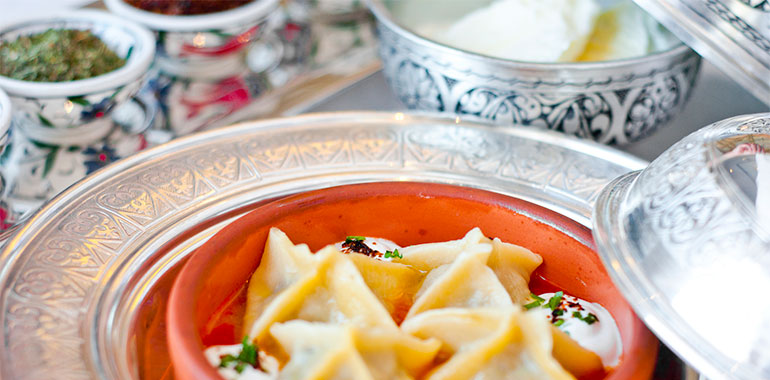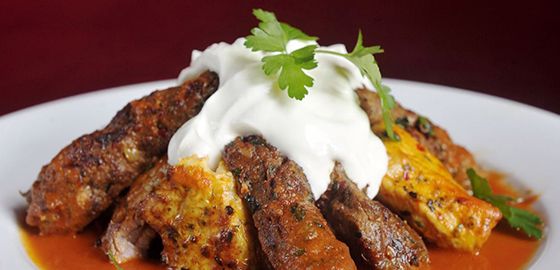In the late 13th century the Ottoman State, founded in northwestern Anatolia in the are of the Sakarya River and the valleys of its tributaries, developed rapidly and grew into a great empire.
Taking the place of its predecessor the Byzantine Empire and wiping it from the map, the Ottomans became a great political presence as well as the most powerful representatives of the Islamic world. People from regions quite remote from each other, and from different ethnicities ad cultures were gathered together under a single political umbrella. Spreading over three continents, the Ottoman Empire thus blended with many different culture and as in every area, so in the areas of food and drink as well, found itself in cultural exchange with them in them.
Parallel to the development and growth of the Ottoman Empire, the cuisine of the palace also showed great development, and the gathering of high-ranking palace residents became one of the most important social activities of the period. This gave rise to the development of extremely rich and delicious dishes which displayed all the creativity and skill of the cooks. Sultans and state officials, in order to feed and hold feasts for foreign guests, ambassadors and other palace guests, had their cooks develop certain recipes. Of those working in the palace and mansions, the chefs were among the most beloved; French statesmen asked permission to retain the chefs which Sultan Abdülaziz took with him on his visit to Paris. During the rise of the Empire, the Ottomans added the cuisine of every area they conquered to their own cuisine. Thus the cuisine of the Ottoman palace and Istanbul in particular became even richer during this period, to reach its peak in the 18th and 19th centuries when the Empire was moving into faster decline.
Doç. Dr. Metin Saip Sürücüo?lu



